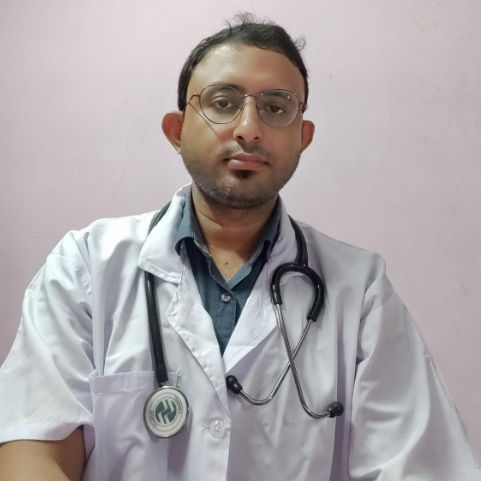Polycystic Ovary Syndrome (PCOS) is a common hormonal disorder affecting women of reproductive age. While its most recognised symptoms include irregular periods, fertility issues, and weight gain, one of the lesser-known but equally impactful symptoms is acne. If you’ve been diagnosed with PCOS and are struggling with acne that doesn’t seem to improve, you’re not alone. In fact, acne is one of the most prevalent skin conditions linked to PCOS, and understanding its root causes and treatment options is crucial for managing your skin and overall health. In this article, we’ll explore how PCOS contributes to acne, the best treatment options available, and effective strategies to help you regain control of your skin.
What is PCOS?
Polycystic Ovary Syndrome is a hormonal imbalance that affects the ovaries and other aspects of a woman’s reproductive system. The condition is characterised by a combination of symptoms that may include:
Irregular menstrual cycles: Longer or absent periods are common.
Cystic ovaries: Ovaries may contain small, fluid-filled sacs known as cysts.
Increased androgen levels: Higher levels of male hormones, such as testosterone, can lead to a variety of symptoms, including acne, excess hair growth, and scalp thinning.
While not every woman with PCOS will experience acne, many find that the condition exacerbates skin issues like breakouts. This is where the connection between PCOS and acne becomes crucial to understand.
How PCOS Causes Acne
PCOS-related acne can be caused by an imbalance in hormones, particularly an excess of androgens (often referred to as "male hormones," although women also produce them in smaller amounts). These hormones play a key role in regulating various body functions, including the production of oil (sebum) in the skin.
In women with PCOS, the ovaries produce higher-than-normal levels of androgens, which triggers several skin-related issues:
Increased sebum production: Androgens stimulate the sebaceous glands in the skin to produce more sebum. When sebum levels are too high, it can clog pores, creating an ideal environment for bacteria to thrive. This, in turn, leads to acne.
Enlarged pores: The excess sebum can also cause the pores to become larger and more prone to blockages. Larger pores are more likely to become clogged with oil, dirt, and dead skin cells, further contributing to acne development.
Inflammation: When bacteria get trapped in clogged pores, the body’s immune response triggers inflammation. This leads to red, painful pimples and cystic acne that can be difficult to treat.
Types of Acne Associated with PCOS
Not all acne looks the same, and it can present differently in individuals with PCOS. The most common types of acne seen in PCOS patients include:
Hormonal Acne: Typically located along the lower part of the face—around the jawline, chin, and neck—hormonal acne is often deep, cystic, and painful.
Cystic Acne: This form of acne involves large, inflamed bumps beneath the skin’s surface that are difficult to treat and can cause scarring.
Back and Chest Acne: Because of increased sebum production, acne may also appear on the back and chest, areas where sebaceous glands are more concentrated.
Treatment Options for PCOS Acne
Managing acne related to PCOS involves addressing the underlying hormonal imbalance as well as treating the skin’s symptoms. Fortunately, there are multiple strategies that can helps:
Hormonal Therapy
Since the acne associated with PCOS is primarily caused by hormonal imbalance, treatments that target androgens can be particularly effective. Some common hormonal therapies include:
Birth Control Pills: Oral contraceptives, especially those containing both estrogen and progestin, are often prescribed to regulate hormone levels. Estrogen helps reduce the production of androgens, which in turn lowers sebum production and decreases the severity of acne.
Spironolactone: This medication is an anti-androgen drug that blocks the effects of testosterone on the skin, helping to reduce oil production. It’s commonly prescribed to women with PCOS who experience acne and excess hair growth.
Progesterone Injections or Implants: These are alternative hormonal treatments, though they may not be as effective in controlling acne as combination birth control pills.
Topical Treatments
Topical treatments are often the first line of defence for treating PCOS acne. They work by reducing inflammation, unclogging pores, and targeting the bacteria that cause acne. Some popular topical treatments include:
Benzoyl Peroxide: This ingredient kills acne-causing bacteria and helps to reduce inflammation. It’s available in various strengths, from over-the-counter options to more potent prescription formulas.
Retinoids: Retinoids, such as tretinoin or adapalene, are derived from vitamin A and work by promoting skin cell turnover. They help prevent clogged pores and reduce the risk of acne. Retinoids can cause irritation at the initial stages of therapy, so it’s essential to start slowly and use them as directed by a dermatologist.
Salicylic Acid: This beta-hydroxy acid (BHA) exfoliates the skin and helps clear pores, making it effective for mild to moderate acne. It’s often found in cleansers, toners, and spot treatments.
Azelaic Acid: Azelaic acid has both anti-inflammatory and antimicrobial properties, making it a great option for those with PCOS acne. It can be particularly helpful for people with sensitive skin.
Oral Medications
In more severe cases of PCOS acne, dermatologists may prescribe oral medications to manage the condition:
Antibiotics: Oral antibiotics like tetracycline, doxycycline, or minocycline help reduce inflammation and bacterial growth, making them a suitable option for moderate to severe acne.
Isotretinoin: For cystic or severe acne that doesn’t respond to other treatments, isotretinoin (commonly known by the brand name Accutane) may be recommended. This powerful medication drastically reduces oil production, but it’s usually reserved for cases that don’t improve with other therapies due to its potential side effects.
Lifestyle and Skincare Modifications
In addition to medications, lifestyle changes and a consistent skincare routine can significantly improve the appearance and health of your skin. Here are a few tips to consider:
Maintain a gentle skincare routine: Use a gentle cleanser for acne-prone skin to remove excess oil and impurities without stripping your skin. Avoid harsh scrubbing, which can worsen irritation.
Hydration: Drink plenty of water to keep your skin hydrated and to flush toxins from your system.
Avoid touching your face: This simple step can prevent the spread of bacteria and oils from your hands to your skin, which could lead to new breakouts.
Dietary adjustments: High glycemic index foods (such as sugar and refined carbohydrates) may contribute to acne flare-ups. A diet rich in whole foods, fibre, and healthy fats may help improve skin health.
Regular exercise: Exercise helps balance hormones, reduce stress, and increase blood circulation, all of which can support healthy skin.
Professional Treatments
Professional dermatological procedures can benefit individuals seeking more intensive solutions beyond regular treatments or aiming for aesthetic improvements.
Chemical Peels: Chemical peels use exfoliating agents to remove dead skin cells and help unclog pores. This treatment can reduce acne scars and prevent future breakouts.
Laser Therapy: Certain lasers can target sebaceous glands, reducing oil production and inflammation. This treatment is particularly effective for cystic acne.
Conclusion
Acne related to PCOS can indeed be both frustrating and challenging, but effective management is well within reach with the right approach. Addressing the underlying hormonal imbalances and implementing a combination of hormonal therapies, topical treatments, and lifestyle adjustments can significantly improve your skin health and boost your confidence. It’s important to recognise that every woman's experience with PCOS acne is unique; what works for one may not work for another. Therefore, consulting with a knowledgeable dermatologist or cosmetologist who understands PCOS is crucial to developing a personalised treatment plan. With patience and the appropriate care, you can take control of your skin and lead a fulfilling life, free from the burden of PCOS acne.
Consult Top Dermatologist

Dr Ritika Shanmugam
Dermatologist
6 Years • MBBS, MD (Dermatology, venereology, Leprosy)
Bangalore
Apollo 24|7 Virtual Clinic - Karnataka, Bangalore

Dr. Hemalatha Naidu M
Dermatologist
5 Years • MBBS, MD (Dermatology)
Bangalore
Apollo 24|7 Virtual Clinic - Karnataka, Bangalore
(150+ Patients)

Dr. K Chetana
Dermatologist
13 Years • MBBS, MD ( Dermatology)
Hyderabad
Apollo 24|7 Virtual Clinic - Telangana, Hyderabad
(25+ Patients)

Dr. Madhab Datta
Dermatologist
5 Years • MBBS, MD (DVL)
Kolkata
Dr. Madhab Datta's Clinic, Kolkata

Dr. Benugopal Mohapatra
Dermatologist
9 Years • MBBS, DNB (Derm, Ven & Lep)
Kolkata
arati medical and polyclinic, Kolkata
